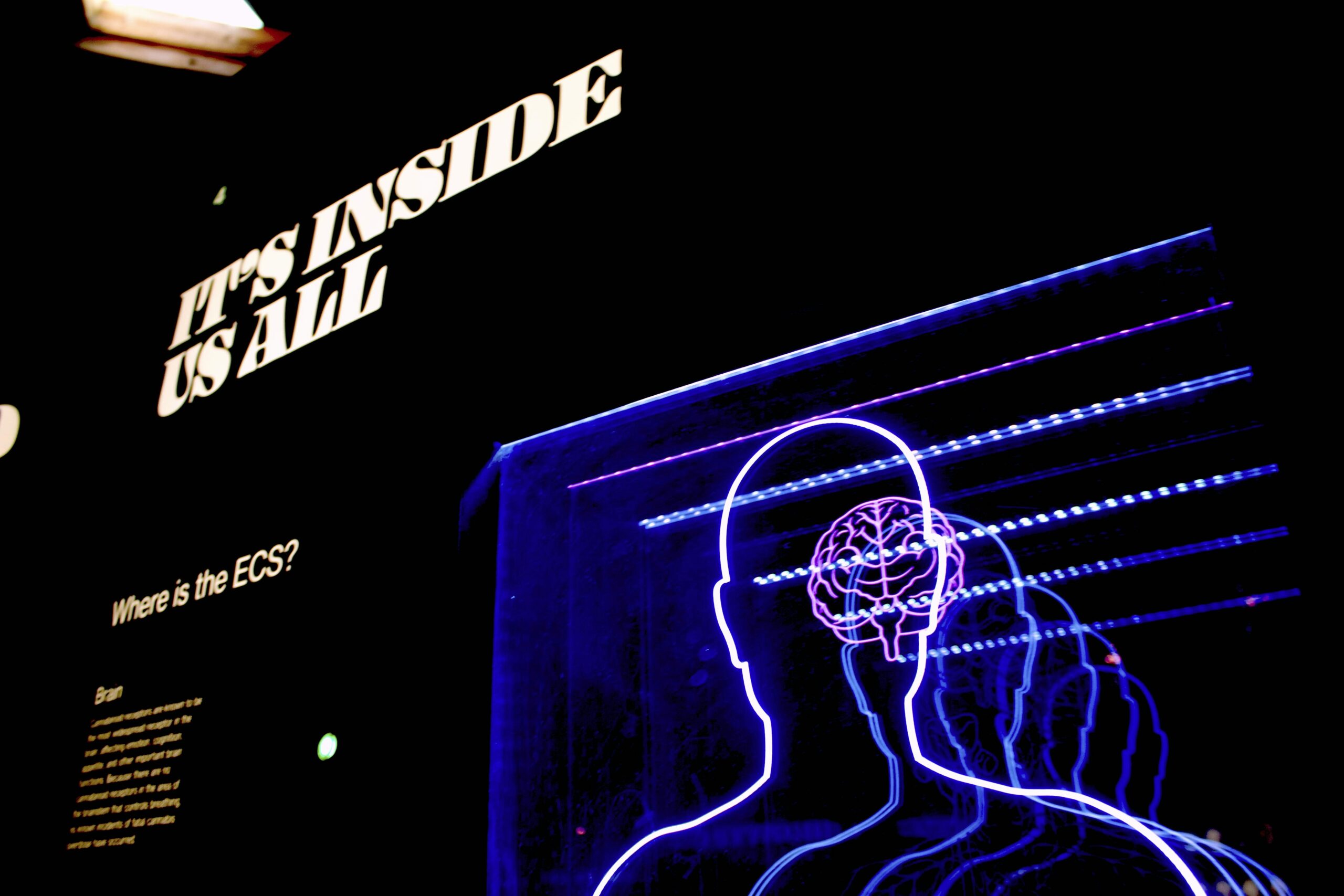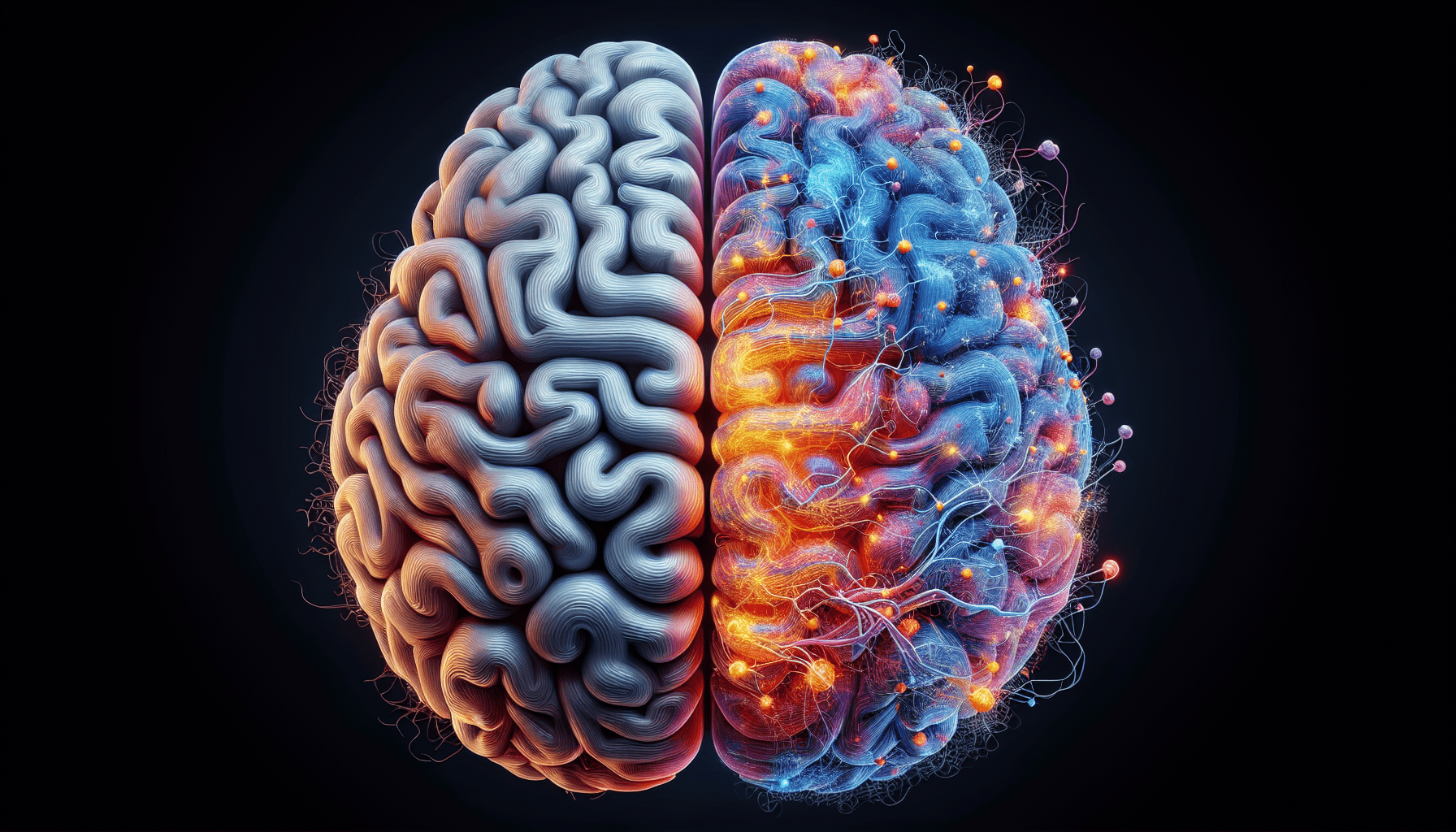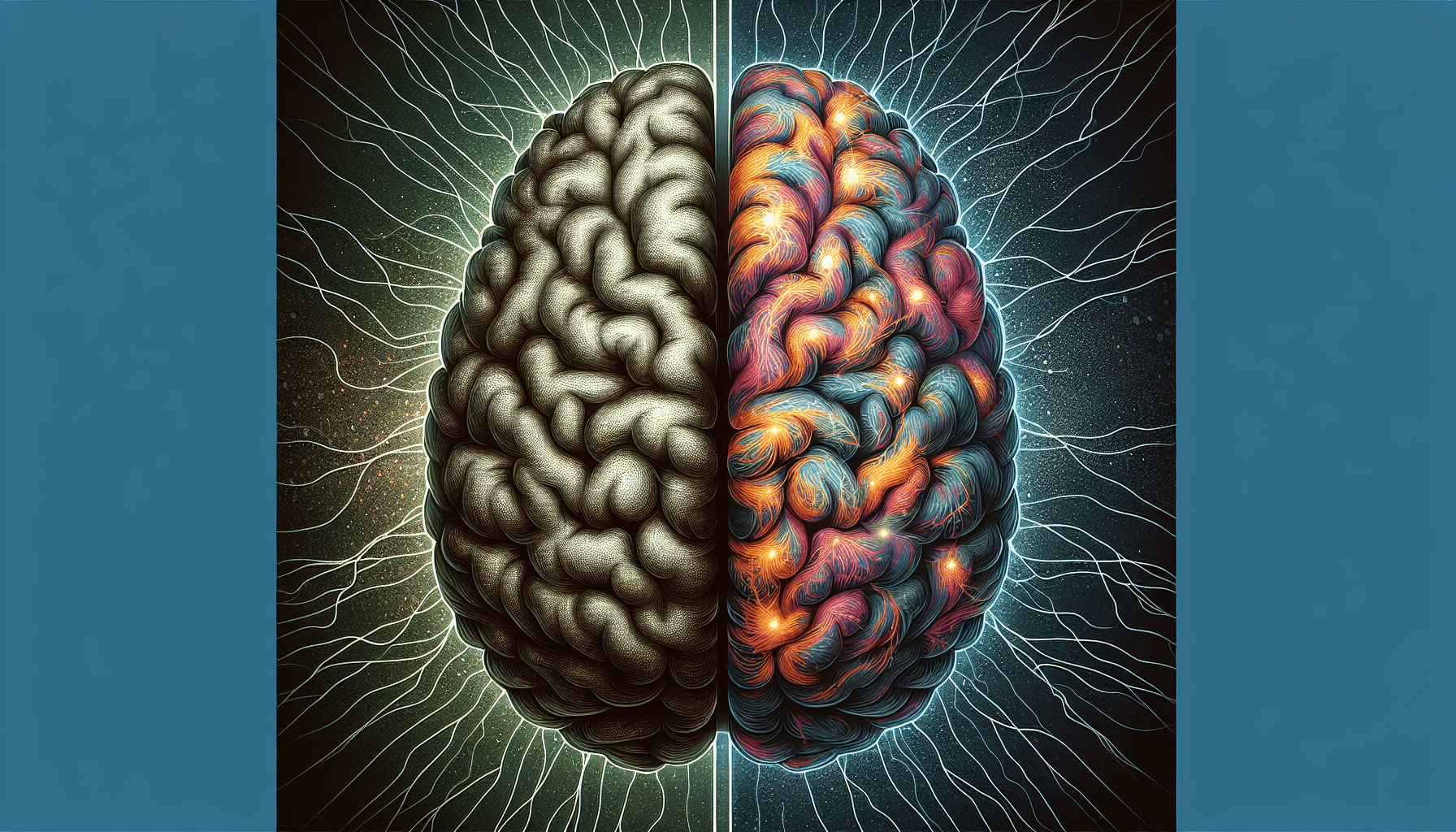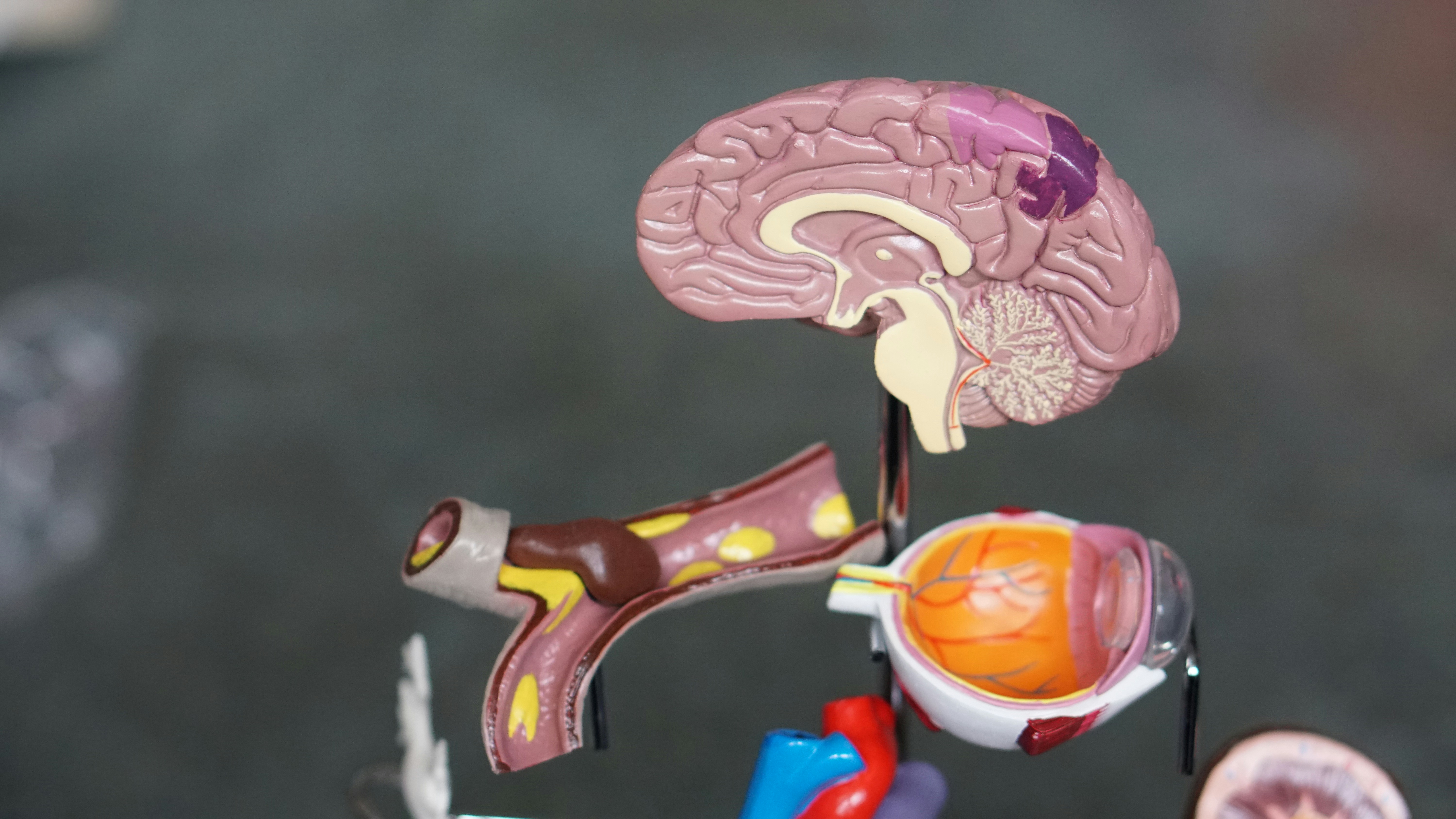In “The Impact of Mental Health Conditions on Cognitive Decline,” you will discover the intricate relationship between mental health disorders and their potential to accelerate cognitive deterioration. This article delves deeply into how various mental health conditions, such as depression, anxiety, and bipolar disorder, can influence your brain's ability to function optimally over time. By understanding this connection, you can gain valuable insights into the importance of addressing mental health issues promptly to maintain cognitive vitality. The Impact of Mental Health Conditions on Cognitive Decline
Have you ever wondered if there's a connection between mental health conditions and cognitive decline? You might be surprised to discover just how closely linked they can be. In this article, we'll delve deeply into the intricate relationship between mental health issues and the deterioration of cognitive functions, shedding light on the mechanisms, risk factors, and potential mitigation strategies.

Understanding Cognitive Decline
Before we jump into the specifics of how mental health conditions affect cognitive decline, let’s make sure we’re on the same page with what cognitive decline actually is. Cognitive decline is the gradual loss of one's cognitive functions, affecting abilities such as memory, thinking, reasoning, and decision-making.
What is Cognitive Function?
Cognitive function refers to a suite of mental tasks and abilities that your brain handles such as learning, memory, problem-solving, and attention. These cognitive abilities help you perform everyday tasks and interact with the world around you effectively.
Stages of Cognitive Decline
Cognitive decline can occur in various stages, ranging from mild to severe. Here’s a simplified breakdown:
| Stage | Description |
|---|---|
| Mild | Slight forgetfulness, minor mood swings |
| Moderate | Increased memory loss, confusion |
| Severe | Significant memory loss, inability to perform daily tasks |
Understanding these stages helps identify when cognitive abilities begin to deteriorate, serving as a foundation for connecting mental health conditions to cognitive decline.
The Connection between Mental Health Conditions and Cognitive Decline
You might be wondering: can mental health conditions actually cause cognitive decline, or is it merely a correlation? The relationship is multifaceted and influenced by various factors.
Depression and Cognitive Decline
Depression is one of the most common mental health conditions linked to cognitive decline. You might not think that feeling down could impact your cognitive function, but here's what the research says:
Mechanisms behind Depression-Related Cognitive Decline
- Neuroinflammation: Depression is associated with increased levels of inflammatory markers in the brain. This inflammation can damage neurons, leading to cognitive decline.
- HPA Axis Dysregulation: The Hypothalamic-Pituitary-Adrenal (HPA) axis controls your stress response. Chronic depression can lead to HPA axis dysregulation, causing excessive cortisol exposure and subsequent neuronal damage.
- Reduced Neuroplasticity: Depression can stifle the brain's ability to form new neural connections, hampering memory and learning abilities.
Anxiety and Cognitive Decline
Like depression, anxiety can also contribute to cognitive decline. Chronic anxiety exposes your brain to a constant state of stress, which can have detrimental effects.
Mechanisms behind Anxiety-Related Cognitive Decline
- Chronic Stress: Constant anxiety keeps your brain in a heightened state of alertness, depleting it of essential resources needed for cognitive functions.
- Sleep Disruption: Anxiety often disrupts sleep patterns. Sleep is crucial for cognitive processes like memory consolidation and problem-solving.
- Neurotransmitter Imbalance: Anxiety can lead to imbalances in neurotransmitters like serotonin and dopamine, negatively impacting cognition.
Bipolar Disorder and Cognitive Decline
Bipolar disorder, characterized by extreme mood swings from mania to depression, also has a significant impact on cognitive functions.
Mechanisms behind Bipolar Disorder-Related Cognitive Decline
- Mood Episodes: Both manic and depressive episodes can impair cognitive function, including memory, attention, and executive function.
- Medication Side Effects: Medications used to treat bipolar disorder can sometimes have cognitive side effects, further complicating the condition.
- Structural Brain Changes: Bipolar disorder is associated with structural brain abnormalities, including reduced gray matter volume, which play a role in cognitive decline.
Schizophrenia and Cognitive Decline
Schizophrenia is another serious mental health condition that severely affects cognitive functions.
Mechanisms behind Schizophrenia-Related Cognitive Decline
- Genetic Factors: Schizophrenia has a strong genetic component that can affect brain development and lead to cognitive deficits.
- Neurochemical Imbalances: Imbalances in dopamine and glutamate can disrupt cognitive processes.
- Brain Structure Abnormalities: Structural changes in the brain, such as enlarged ventricles and reduced hippocampal volume, are commonly found in individuals with schizophrenia and contribute to cognitive decline.
Risk Factors
Understanding the risk factors associated with mental health conditions and cognitive decline can help you take preventive measures. Here are some significant risk factors:
Age
As you age, you become more susceptible to both mental health issues and cognitive decline. Recognizing this can help you stay vigilant about monitoring your mental health.
Genetics
If you have a family history of mental health conditions or cognitive decline, you might be at a higher risk. Genetics play a crucial role in both areas, so awareness can guide proactive care.
Lifestyle Factors
Your lifestyle can significantly impact both mental health and cognitive function. Lack of physical activity, poor diet, and substance abuse are some of the lifestyle factors that can raise your risk.
Chronic Illness
Chronic health conditions such as diabetes, hypertension, and cardiovascular disease can exacerbate the relationship between mental health issues and cognitive decline.
Social Isolation
Social interactions are essential for mental well-being. Social isolation not only increases the risk of mental health conditions like depression but also accelerates cognitive decline.

Mitigation Strategies
The good news is that you can take steps to mitigate the impact of mental health conditions on cognitive decline. Here are some strategies:
Medication and Therapy
Consulting a healthcare provider for appropriate medication and therapy can help you manage mental health conditions effectively, thereby reducing the risk of cognitive decline.
Antidepressants for Depression
Antidepressants like SSRIs and SNRIs can help manage depression, which in turn can alleviate some of the cognitive issues associated with it.
Anti-Anxiety Medications
Medications such as benzodiazepines and SSRIs can help manage anxiety, thereby reducing its cognitive impact.
Cognitive Behavioral Therapy (CBT)
CBT is highly effective for both depression and anxiety. By changing thought patterns, you can improve both your mental health and cognitive function.
Lifestyle Changes
Adopting a healthy lifestyle is crucial for both mental health and cognitive function. Here’s what you can do:
Physical Activity
Regular exercise boosts both mental and cognitive health. Activities like walking, swimming, and yoga can be especially beneficial.
Healthy Diet
A balanced diet rich in fruits, vegetables, whole grains, and lean proteins provides essential nutrients that support both mental and cognitive health.
Social Engagement
Maintaining social connections can improve your mental health and slow down cognitive decline. Join clubs, engage in community activities, or simply spend time with friends and family.
Cognitive Training
Engage in activities that challenge your brain, such as puzzles, games, and learning new skills. Cognitive training can help enhance your cognitive reserve, making you more resilient to decline.
Stress Management Techniques
Practicing stress management techniques like mindfulness, meditation, and deep-breathing exercises can help you better manage mental health conditions and their cognitive effects.

Early Detection and Screening
Early detection is crucial for managing both mental health conditions and cognitive decline. Regular check-ups with your healthcare provider can help you identify issues before they become severe.
Mental Health Assessments
Regular mental health assessments can help catch conditions like depression and anxiety early, making them easier to treat and manage.
Cognitive Screenings
Routine cognitive screenings can help detect early signs of cognitive decline, enabling you to take proactive steps to manage it effectively.

Conclusion
The intricate relationship between mental health conditions and cognitive decline is well-documented, highlighting the need for comprehensive care strategies. By understanding the mechanisms, risk factors, and mitigation strategies, you can take proactive steps to safeguard both your mental and cognitive health. Remember, early detection and a holistic approach can make a significant difference in your overall well-being.
By nurturing both your mind and body, you’re not only improving your quality of life but also building resilience against cognitive decline. So why wait? Start taking steps today to protect your mental health and cognitive functions. Your future self will thank you.

